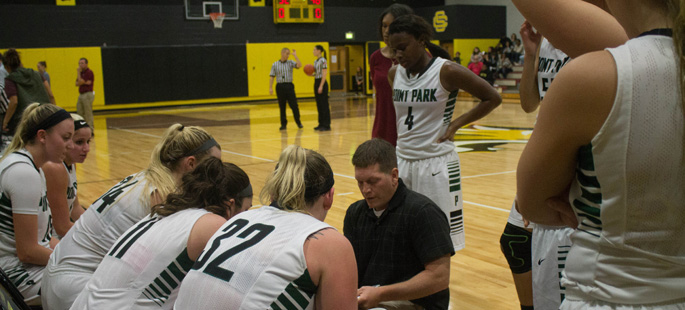Point Park University Introduces Master of Education Degree in Athletic Coaching Friday, April 14, 2017

Fully online degree for educators looking to develop well-rounded coaching skills
In today's highly competitive world of amateur sports, coaches play an integral role in the development of student athletes, starting as young as elementary school and often spanning all the way to college.
-- Darlene Marnich, Ph.D., Professor and Chair of Point Park University's Education Department
Learn More
"Being an effective coach is more than just knowing how to play a sport. It's about seeing the whole student, how to motivate them, how to keep them safe and how to help them find joy in the sport they are playing."
-- Mark Hart, Vice President of Planning and Development for the Pittsburgh Steelers
However, as most coaches know, not all student athletes will play in high school or college, and just a small fraction ever become professional. Being a good coach to all students, at all levels, is a critical skill that is now the focus of a unique, fully online master's degree program in athletic coaching at Point Park University.
"Coaching, both good and bad, can make headlines," said Darlene Marnich, Ph.D., professor and chair of the Department of Education at Point Park University. "A lot is expected but very little has been offered in the way of educating and training men and women who want to be coaches."
There is, according to Marnich, an "art and science" behind coaching and that approach is what informs the Master of Education in athletic coaching, which emphasizes teaching, mentoring and skill building.
The program is framed by the National Standards for Sports Coaches, established by the Society of Health and Physical Educators. These standards are expected by school and university administrators, athletes, parents and the public nationwide.
According to Marnich, students enrolled in the program will learn a wide variety of important skills centered around the physical, emotional and psychological well-being of student athletes.
"As teachers, we know that coaches can be exceptional mentors, role models and educators who genuinely care about the welfare of students. Our program helps support these dedicated individuals so they can be better informed, trained and effective in their coaching responsibilities," Marnich added.
"Point Park University's master's degree in athletic coaching is long overdue," said Mark Hart, vice president of planning and development for the Pittsburgh Steelers.
Hart, who participated in the focus group board meeting for the program, added: "Being an effective coach is more than just knowing how to play a sport. It's about seeing the whole student, how to motivate them, how to keep them safe and how to help them find joy in the sport they are playing."
The Master of Education in athletic coaching program includes how to effectively communicate to stakeholders, safety and emergency response, ethical decision-making, administering a coaching program, and practical applications in the support and development of athletes' skills.
According to the National Bureau of Labor Statistics, athletic coaching is a field growing nationally as well as locally, with recent surveys indicating that approximately 10,000 coaches and scouts are employed in Western Pennsylvania.
Point Park's Master of Education in athletic coaching's fully online format offers flexibility for working professionals, especially teachers and those already coaching sports teams. For Pennsylvania teachers, the graduate program will fulfill the 24 post-baccalaureate credits needed for an Instructional II certificate.
Graduates with a Master of Education in athletic coaching will be prepared for coaching opportunities in various settings including K-12 public or privates schools, colleges and universities, travel or club teams and professional sports teams.

